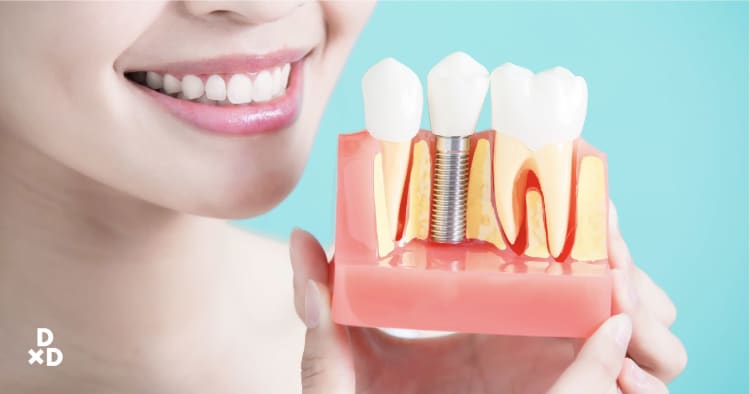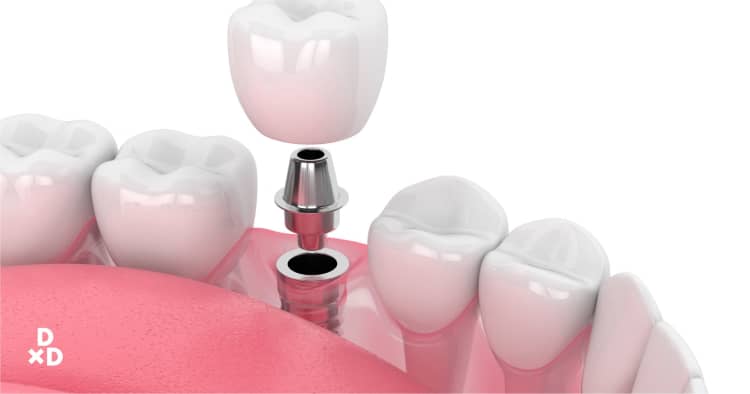Introduction
Our teeth are integral to living a happy, healthy life. Unfortunately, our adult teeth won’t grow back once they’ve fallen off or get damaged and, throughout our lifetime, we may lose them — they could get ruined, go missing or we experience gum disease or other oral issues.
Fret not! Advancements in technology have allowed us to replace these teeth with a shiny new set. A great form of permanent teeth replacement, dental implants, have come a long way and have been improved and refined to resemble the natural tooth.
Dental surgeon, Dr Samintharaj Kumar, will walk us through everything we need to know about getting dental implants, what to expect, and other related topics.
What are Dental Implants?
Dental implants are ceramic or titanium screws that are implanted into the jaw bone to provide a sturdy base of support for a crown to be placed on top of it. To help you visualize, you may see dental implants as the artificial tooth root while the crown can be seen as the artificial tooth [1].
Procedures for dental implants vary in duration, and can be as quick as finished on the same day, or could take a long term of three to six months.
Dental implants are the most popular tooth restoration procedure for teeth — with other alternatives being a crown bridge or dentures. This is the much-preferred method of replacing missing teeth, as dentures tend to move when the patient is eating. Furthermore, dental implants prevent the need for mature teeth to be cut down so that the bridge can be made.
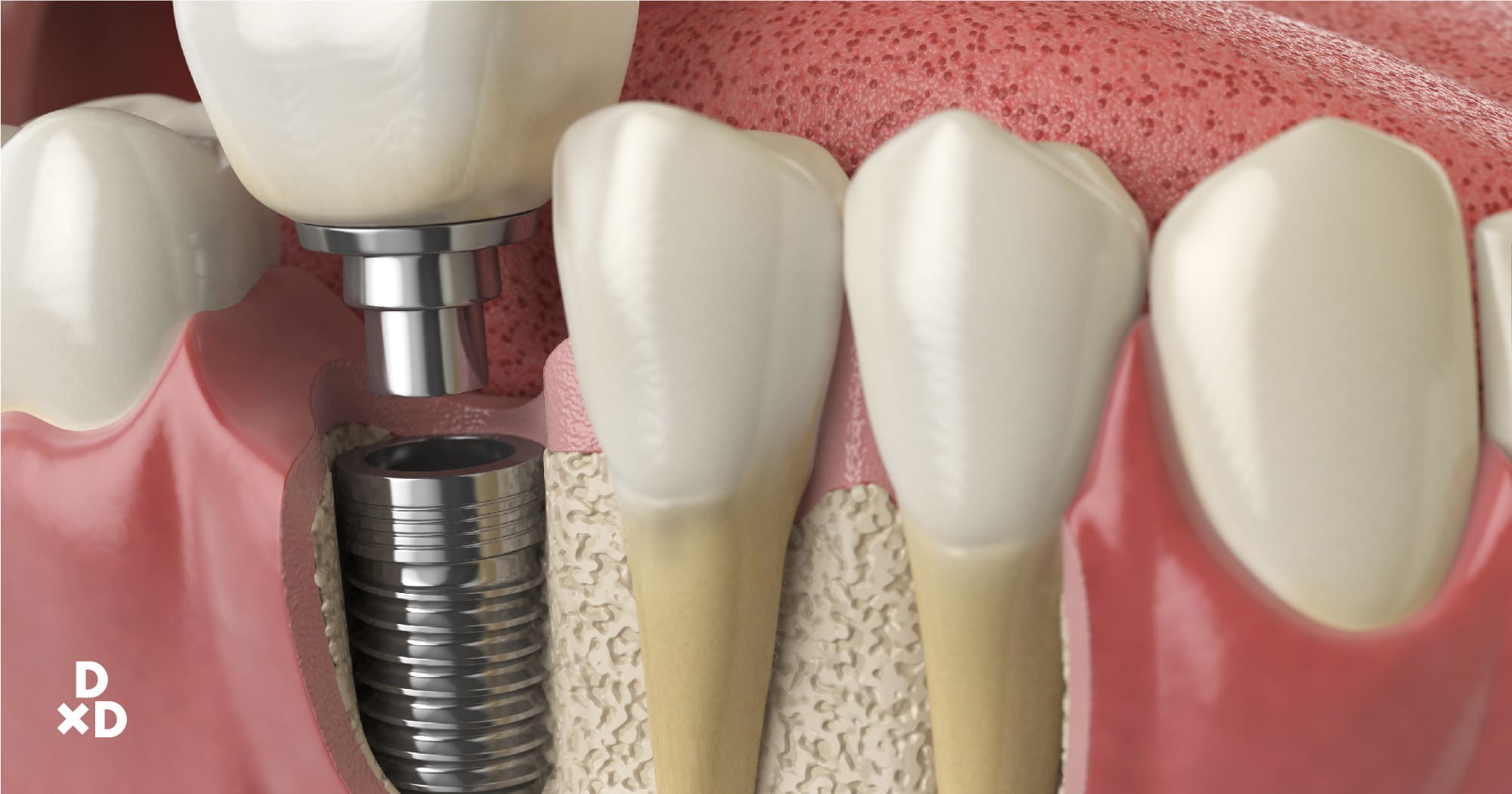
What are the different types of Dental Implants?
There are two main types of implant sites, Endosteal and Subperiosteal.
Endosteal
The more common of the two, endosteal implants are embedded in the jawbone, where each implant can hold one or more artificial teeth. These implants are known for having the most natural-feeling results.
Subperiosteal
A subperiosteal tooth implant is fixed on top of the jawbone, under the gum. Usually, dental surgeons utilise this method for patients who do not have enough natural jaw bone but do not want to undergo a bone augmentation procedure. Although they do not have the same level of stability, this treatment process is far shorter than an endosteal implant.
If the jawbone is unable to support dental implants, several possible techniques can be used to provide ample foundation for the prosthetic teeth. These are [2]:
- Bone augmentation
- Sinus lift
- Ridge expansion
Thankfully, these are not for you to worry about. Your dental surgeon will analyse the anatomy of your jaw in order to plan the best course of treatment for your implant. It is also very important to communicate both your desires and concerns with your dentist so that they can discern what treatment would best suit you.
Dental implant material
There are many different types of dental implants, but it is important to consider your options. These are mainly titanium and ceramic implants. Your decision should be based on factors such as price, safety, comfort and reliability.
In the past, the majority of implants were made only of titanium, and ceramic dental implants are a relatively newer form of implant. It would be a point of note that ceramic dental implants are costlier because of the manufacturing and implant process, however, they provide a better bite and more natural-feel.
Furthermore, some patients are allergic to metals and are unable to have titanium dental implants and have to opt for ceramic implants. Autoimmune conditions such as arthritis can also determine the type of implants needed in a patient.
In arthritis, there are possible complications when there is metal (titanium) present in the body. As such, patients will opt for ceramic dental implants to avoid potential complications that can happen if titanium dental implants are used instead.
If your dentist has recommended metal-free implants, i've written a more in-depth article on metal-free implants here.
That being said, both types of implants are considered safe and have undergone extensive testing to be allowed on the market.

Who cannot have Dental Implants?
Dental implants are generally universal healthcare that aims to improve the quality of life for an individual, and hence, the majority of people are suitable to receive dental implants although treatment processes may vary. Before dental implant surgery, the dentist will examine the following to test your suitability for the dental implant treatment:
- Medical history
- Smoking
- Diabetes
- Poor oral hygiene habits
- Osteoporosis
- Vitamin D or C deficiencies
The doctor will also assess any form of potential problems that might contribute to poor healing of the implant.
As dental implants work by surgically attaching into the jawbone and serves as the root of any missing teeth, they need to have a good amount of healthy bone for the dentist to place the implant and for proper healing.
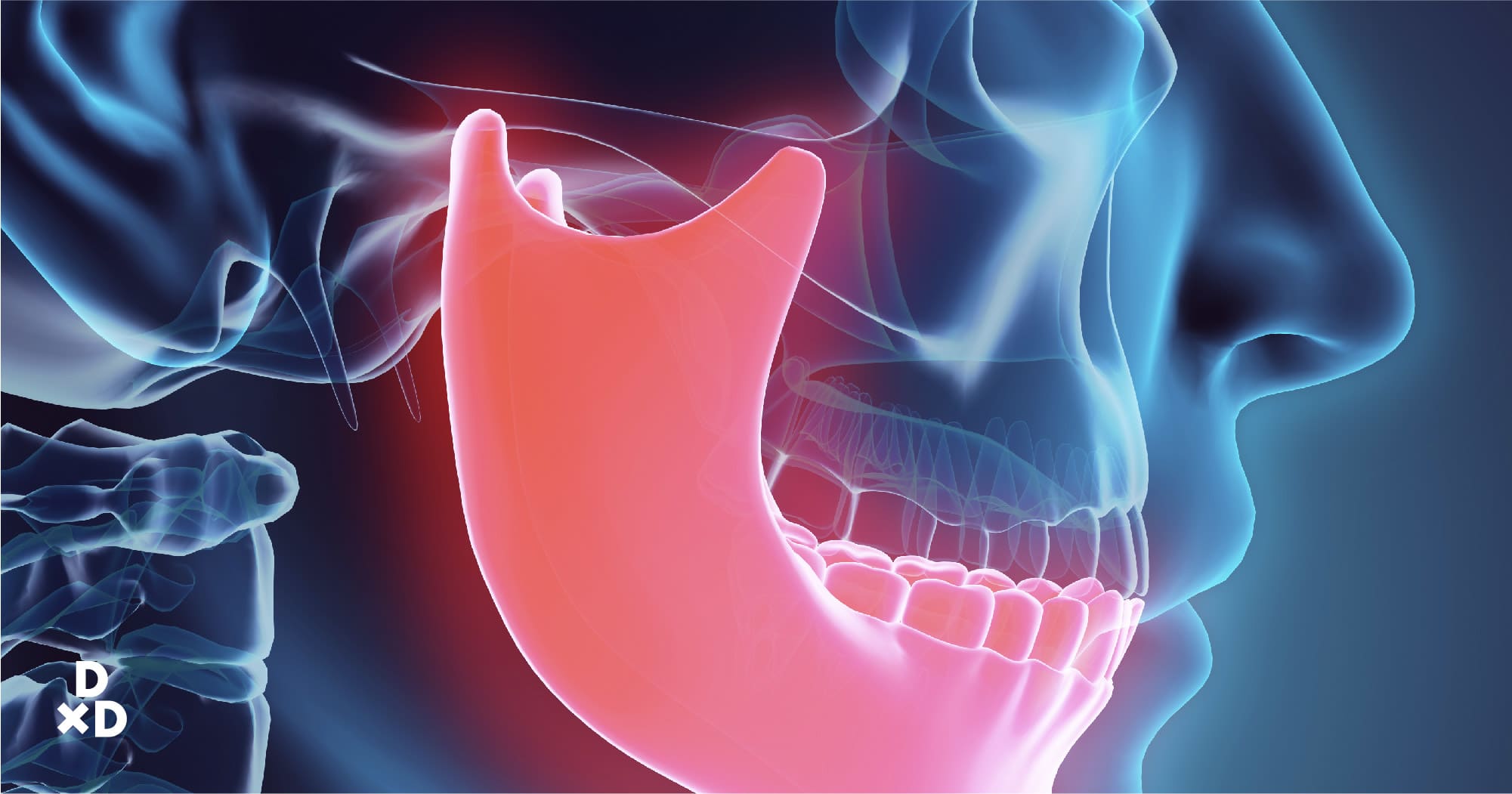
As such, patients with low calcium, low vitamin D, and low bone density are generally discouraged from getting dental implants. It is important for patients to have good bone health, which could be fixed with supplements, medication and having a healthy diet.
Frequent smokers and patients that do not practise good dental hygiene or are unable to keep their mouths or implants clean should not consider getting dental implants as well. This is because much like real teeth, dental implants require the same or even more care and maintenance. If not taken care of, an implant may end up failing as, which would require a second implant placement.
Also read: How long should I refrain from smoking after getting dental implants?
Patients with underlying health conditions that can affect bone health are encouraged to treat the disease first before getting dental implants. This is to ensure that the patient’s bone health is strong enough to withstand the treatment and allow the dental implant to last.
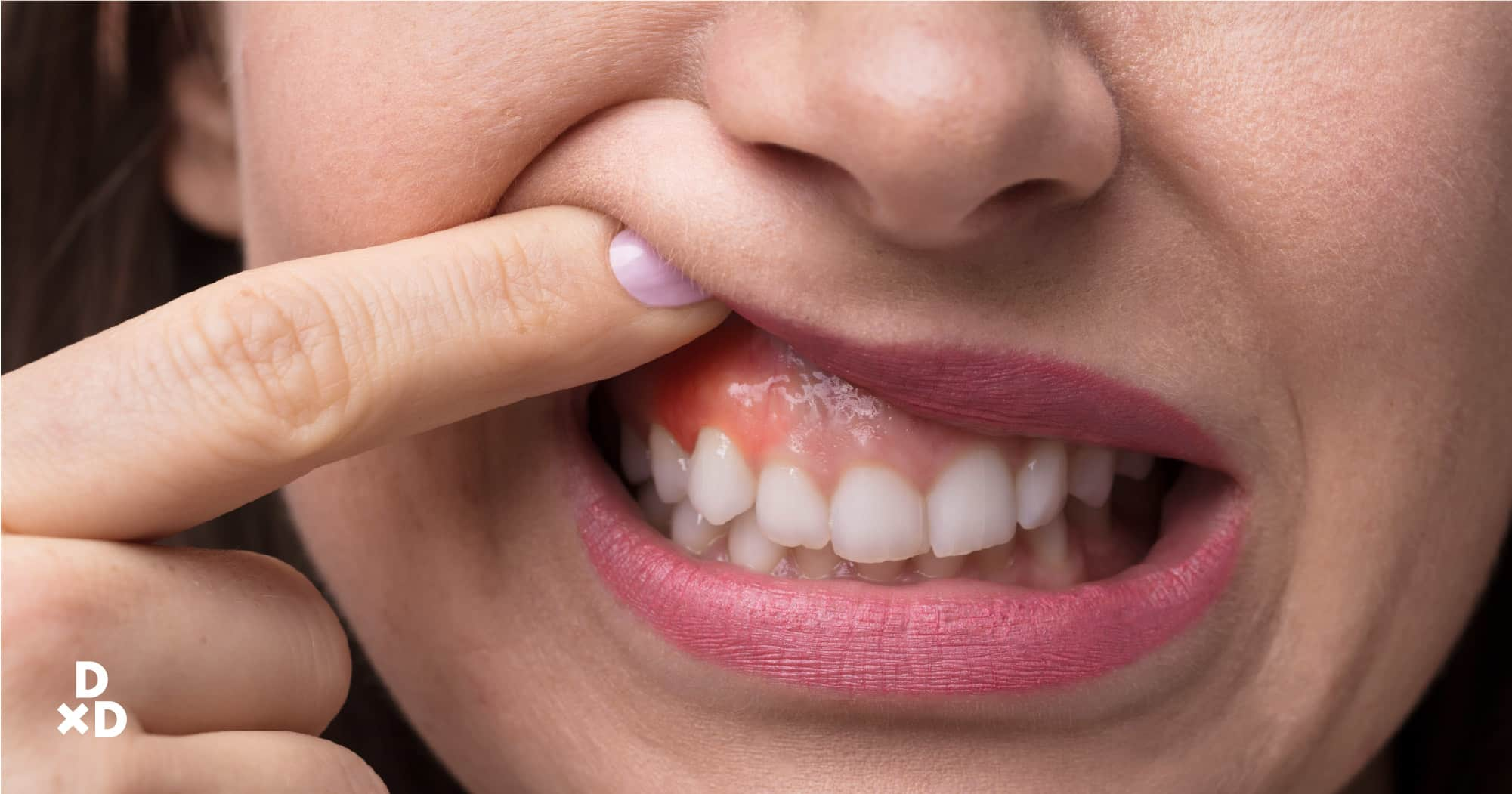
Possible Complications from Dental Implants
The patient will not feel any pain during the procedure because local anaesthesia will be used. However, you can expect mild swelling and bruising. Typically, swelling subsides within 48 to 72 hours, while bruising should go away within one or two weeks. Aspirins or painkillers could also be prescribed for pain while the implant heals.
The rarer complications that some patients may face come in the form of tiredness and lethargy, and redness around the gum implant or around the gum. Some patients may also feel the bizarre phenomenon of an “electric shock” when touching their faces [3]. These symptoms may be due to an underlying condition that causes the body to reject metal implants. In this case, patients may want to consider having the metal implants removed and replaced with ceramic ones.
Much like any medical procedure, the success rate of dental implants is not foolproof. Internally, there is a success rate of 98% to 99%, meaning that for every 100 implants that are placed, one or two will end up in failure.
The success rate also varies depending on the type of implant. For immediate implants, the success rate drops to 86% to 94% due to the nature of the procedure as the teeth are taken out and an implant is placed immediately on the same day. This differs from the conventional method of allowing the implant to heal for 3 to 4 months before making a crown. Dental implant failures can be detected as early as a few weeks or even as late as 1 to 2 years after the implant is placed.
When dental implants fail, it is possible to do the procedure again. However, it is important to determine the cause of failure so it can be remedied before trying again [4].
For example, if an implant has failed due to poor bone health, low vitamin D, or has a history of osteoporosis, they will be required to go for a blood test and subsequently treat the underlying conditions that are preventing them from having a successful dental implant. From there, the patient can then try again, increasing their chances for a successful dental implant.
Of course, the success of an implant also depends greatly on the patient and their ability to keep these implants clean to prevent further complications.
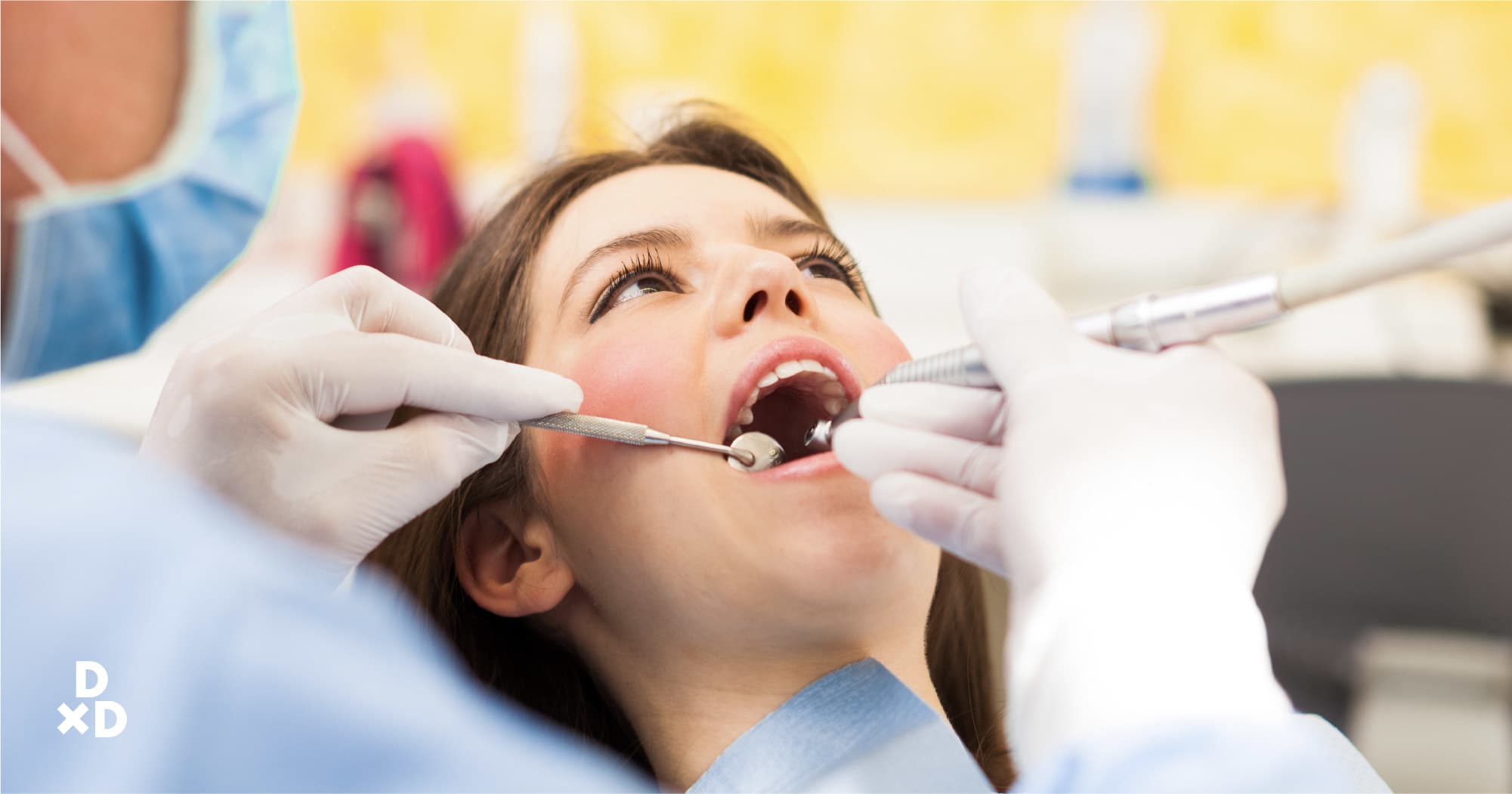
Dental Implant Procedure
It is important that patients prepare for the dental implant procedure. Although the dentist is solely responsible for performing the procedure, patients are still encouraged to understand what would be done to them, so they can evaluate the cost and learn about the risks and possible complications that may happen [5].
Patients should also discuss with their dentist regarding the type of material they want to use, the cost of the material, and the success rate of the dental implant.
Also read: Dental Implant Costs In Singapore: A Dentist Tells All
It is paramount that patients follow the precautions as instructed by the dentist and usually, post-operative instructions are given to manage patients’ expectations before the surgery. Generally, patients are instructed not to drink milk in the first 3 hours after the procedure, and to avoid hot drinks on the same day of surgery.
On the day of the surgery, the dentist will give preoperative antibiotics, mouthwash, and painkillers before applying local anaesthesia to numb the area where the dental implant will be. Following that, the dentist will create an incision on the gum to allow exposure of the bone to check for bone defects before the implant is placed and suitable reconstruction of the bone defect is done.
Afterwards, stitches will be applied and the patient will be instructed to avoid food or drinks for an hour after the procedure. The implant position will also be checked by the dentist using an x-ray to determine that everything is okay and the procedure is successful. Patients are then required to return after 2 weeks to review and check on the condition of the dental implants to check if everything is okay.
The entire procedure (including bone grafting, if needed), will take around 5 to 10 minutes, with more complicated ones requiring 20 to 30 mins. Procedures rarely require longer than 20 to 30 minutes unless the patient is opting for All-on-4 treatment. If the patient experiences minimal swelling, it allows the dentist to work faster, and causes the procedure to be quicker.

What is Post-procedure like after getting Dental Implants?
Following the dental implant procedure, patients are encouraged to rest for at least a week before resuming daily activities.
They are recommended to avoid strenuous exercises and hard foods to allow the wounds to fully heal. If dental implants are placed near the sinuses, they are instructed to avoid air travel for 6 weeks [6]. However, this is subject to the physical capability of each individual and may vary for each patient. That being said, the general consensus is to allow the wound and implant to heal for at least a week or two.
The aftercare of dental implants are similar to normal teeth — to brush at least twice a day, and floss every day. Additionally, Waterpik is crucial and highly recommended for maintaining oral hygiene and healthy implants, as it helps clean areas that are otherwise hard to reach with a toothbrush.
In addition to adhering to proper dental care practices, patients are required to go for regular dental checkups every 6 to 12 months to examine the implant and to ensure that it is clean, with no tartar build-up underneath the implant, preventing implant failure. Patients can also opt for cleaning on-site, where the dentist can help them clean the implants regularly.
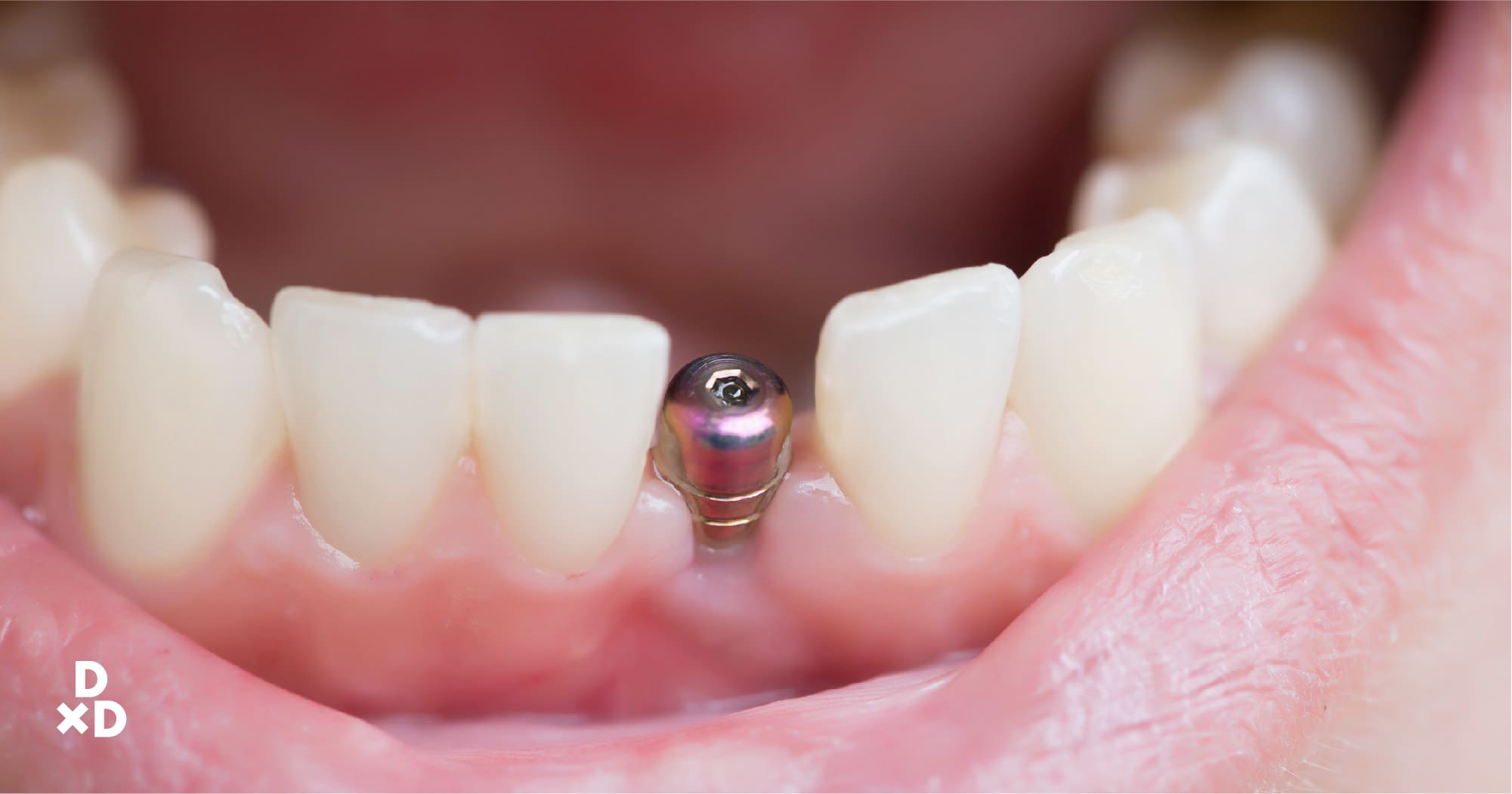
Do Dental Implants need to be replaced?
Dental implants do not need to be replaced. They are a permanent alternative to adult teeth, and with proper care, should not require any replacement and will last a very long time.
However, in some cases, implants go through inflammation, known as peri-implantitis. For these patients, the implant needs to go through dental implant salvage where the top part of the crown is removed and a bone graft is placed around the implant after cleaning it thoroughly.
If this does not work, the implant will eventually loosen and will have to be removed and replaced with a new dental implant. Other complications such as trauma and accidents that cause the implant to fall out are subjected to the dentist’s further examination to discern whether they are salvageable or require a completely new implant.
Also read: 5 Reasons Why Dental Implants Fail
What are the costs of Dental Implants in Singapore?
Dental implants can range from $2,200 to $8,000 depending on the sort of materials, implant system, and what the type of dental implant surgery required.
Also read: A Doctor's Explanation of Differing Dental Implants Cost.
For example, for a front tooth that requires bone and gum grafting, a ceramic implant with the highest aesthetics can range from $7,000 to $8,000 for a single implant. Hence, it is important to check in with your dentist on the different treatment plans, materials, and costs of dental implants you require.
An in-depth cost breakdown of what goes into the cost of your dental implant can be found here.
For Nuffield Dental, procedures such as implant surgery, wisdom teeth surgery/ wisdom tooth extraction, bone grafting, removal of cysts, and biopsies are all Medisave claimable.
Furthermore, if the patient’s Medisave does not provide enough savings, they can opt to use the Medisave savings of their immediate family members, subject to the claim limit under Medisave guidelines.

Summary
The main goal of dentists with dental implants is to ensure that the implant lasts and the patient has an overall improved quality of life after the procedure.
There is no such thing as the best implant procedure, but a procedure that best suits your needs and a dentist that can perform the procedure properly, without complication. It is also important to choose a dentist that you are comfortable with and understands your needs and wants.
Also read: How Do You Choose the Right Dentist for Your Dental Implants?
Teeth are an indispensable part of the body that plays a major role in both aesthetics and nutrition. With ample preparation, the right decisions and proper care post-procedure — you will have a new set of teeth that will last a lifetime.
If you are considering implants, you may book an appointment with us through this contact form or find your nearest Nuffield Dental clinic through this clinic locator.
Also, here's a list of other dental services that we provide at Nuffield Dental. All the best!
About Dr Kumar:
As an undergraduate, Dr Samintharaj Kumar was the first South-East Asian recipient for the David B. Scott Research Fellowship Award from the International Association for Dental Research. In 2001, he obtained his bachelors in Dentistry.
In 2001, he obtained his bachelors in Dentistry. While at medical school he received awards from the British Association of Plastic Surgeons, British Association of Oral & Maxillofacial Surgeons, The Royal College of Physicians and The Wellcome Trust. He was also awarded the Drummond and Frank Scott Prize. , the British Association of Plastic Surgeons, British Association of Oral & Maxillofacial Surgeons, The Royal College of Physicians and The Wellcome Trust.
For more information about the dental services provided by Dr Kumar, visit his website here.
